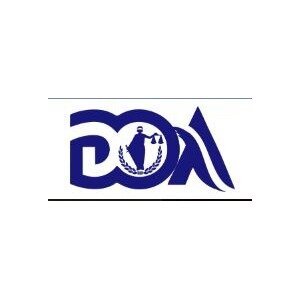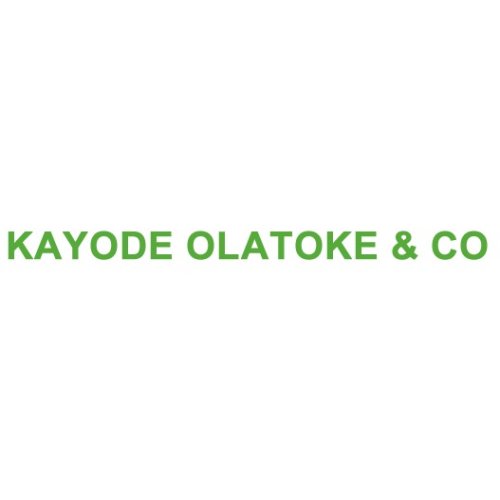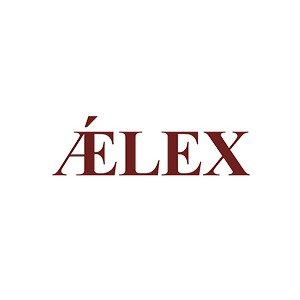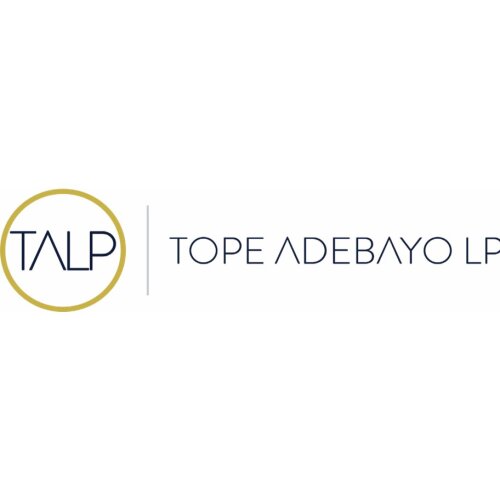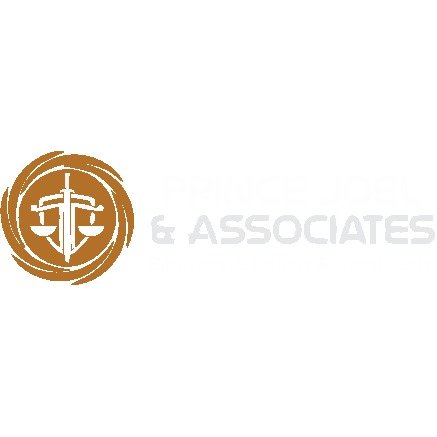Best Reinsurance Lawyers in Nigeria
Share your needs with us, get contacted by law firms.
Free. Takes 2 min.
Or refine your search by selecting a city:
List of the best lawyers in Nigeria
Legal guides written by Adeola Oyinlade & Co:
- Procedure and Requirements for Work Permit and Visas in Nigeria
- The Step-By-Step Procedure of How to Apply for Microfinance Bank License Online in Nigeria
- How to Ensure the Smooth Recognition and Enforcement of Foreign Judgments in Nigeria
About Reinsurance Law in Nigeria
Reinsurance is a strategic tool used by insurance companies to manage risk by transferring part of their liabilities to other companies, known as reinsurers. In Nigeria, reinsurance is a vital component of the insurance market, providing stability and security to insurance companies by enabling them to underwrite policies with high coverage limits or unusual risk profiles. The industry is regulated by the National Insurance Commission (NAICOM), which oversees the activities of reinsurance companies and ensures compliance with established norms and standards.
Why You May Need a Lawyer
Legal assistance may be necessary in various situations involving reinsurance such as negotiating reinsurance treaties, resolving disputes between insurers and reinsurers, compliance with regulatory requirements, due diligence during mergers or acquisitions, and interpretation of reinsurance contracts. Lawyers specializing in reinsurance law can provide expert advice, representation in litigations, and ensure that transactions adhere to complexities inherent in the field.
Local Laws Overview
In Nigeria, the local laws that govern reinsurance include the Insurance Act of 2003, which mandates regulations for all insurance and reinsurance activities. Some key aspects include the licensing requirements for reinsurers, guidelines on capital adequacy, the role of NAICOM in monitoring reinsurance activities, and rules on reporting and documentation. NAICOM's guidelines also emphasize transparency, financial stability, and adherence to international best practices.
Frequently Asked Questions
1. What is reinsurance?
Reinsurance is a process where an insurance company transfers part of its risk portfolio to another insurance company to reduce the likelihood of paying a large obligation ensuing from an insurance claim.
2. Why is reinsurance important?
Reinsurance provides insurance companies with protection against large claims, stabilizes financial losses, and enhances their capability to underwrite larger policies.
3. Who regulates reinsurance in Nigeria?
The National Insurance Commission (NAICOM) is responsible for the regulation and supervision of the reinsurance industry in Nigeria.
4. How do reinsurance treaties work?
Reinsurance treaties are agreements between the ceding insurance company and a reinsurer, specifying the terms and conditions under which risks are transferred.
5. What types of reinsurance are available?
The two primary types are facultative reinsurance, which covers specific risks, and treaty reinsurance, which covers categories of risks.
6. Can Nigerian insurers deal with foreign reinsurers?
Yes, Nigerian insurers can engage with foreign reinsurers, but they must comply with NAICOM’s guidelines on the certification and approval of such engagements.
7. What are 'retrocession' and its relevance?
Retrocession is the practice of reinsurers further ceding risks to other reinsurers. It helps in diversifying risk exposure on a global scale.
8. Are there laws regarding capital requirements for reinsurers?
Yes, the Insurance Act stipulates minimum capital requirements to ensure the financial stability and solvency of reinsurance companies.
9. What common issues arise in reinsurance disputes?
Disputes often arise over claims payment terms, contract interpretations, or compliance with treaty stipulations.
10. How can a lawyer assist with compliance to NAICOM regulations?
A lawyer with expertise in reinsurance law can navigate through complex regulatory requirements and ensure that all necessary licenses and compliances are up to date.
Additional Resources
Some useful resources include the National Insurance Commission (NAICOM) for regulatory guidelines, Insurance and Reinsurance Lawyers in Nigeria for legal consultations, and professional organizations like the Nigerian Insurers Association (NIA) and the African Insurance Organisation (AIO) for networking and advice.
Next Steps
If you require legal assistance in reinsurance, consider reaching out to a lawyer with experience in the field. They can provide valuable insights into compliance, help negotiate contracts, and manage disputes. For those unfamiliar with how to find the right legal counsel, starting with recommendations from industry associations or exploring legal directories may help. Additionally, staying informed on local reinsurance laws through NAICOM publications can be beneficial.
Lawzana helps you find the best lawyers and law firms in Nigeria through a curated and pre-screened list of qualified legal professionals. Our platform offers rankings and detailed profiles of attorneys and law firms, allowing you to compare based on practice areas, including Reinsurance, experience, and client feedback.
Each profile includes a description of the firm's areas of practice, client reviews, team members and partners, year of establishment, spoken languages, office locations, contact information, social media presence, and any published articles or resources. Most firms on our platform speak English and are experienced in both local and international legal matters.
Get a quote from top-rated law firms in Nigeria — quickly, securely, and without unnecessary hassle.
Disclaimer:
The information provided on this page is for general informational purposes only and does not constitute legal advice. While we strive to ensure the accuracy and relevance of the content, legal information may change over time, and interpretations of the law can vary. You should always consult with a qualified legal professional for advice specific to your situation.
We disclaim all liability for actions taken or not taken based on the content of this page. If you believe any information is incorrect or outdated, please contact us, and we will review and update it where appropriate.
Browse reinsurance law firms by city in Nigeria
Refine your search by selecting a city.





